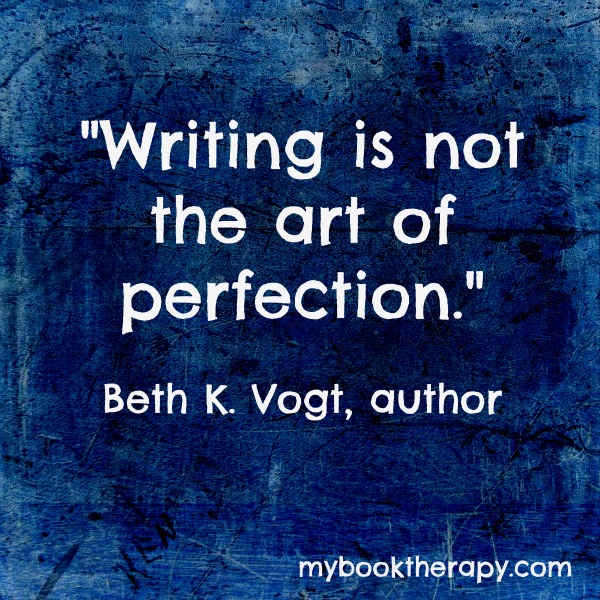I was talking on the phone with a writer-friend a few weeks ago, encouraging her as she prepared to submit a manuscript to an agent. She gave me a rundown of what she had left to do – a list of one-more-things that she needed to finish before she could push SEND.
After detailing all her must-do’s, she said, “I know it’s not going to be perfect.”
Something in her tone made me pause and ask her, “Do you hear yourself?”
“What do you mean?”
“You said ‘It’s not going to be perfect.’ But the way you said it, you sounded disappointed in yourself – like somehow, someway, you should be able to make this manuscript perfect.”
There was a moment’s silence, and then she said, “I guess you’re right. I am disappointed in myself.”
And that’s when I said:
“Writing is not the art of perfection.”
I know a lot of talented writers. Award-winning, best-selling authors. You know what? None of them write perfect manuscripts.
I also know myself. I try to up my game with every novel I write. Even so, writing is about getting better – not about being perfect. Writing is challenging enough without setting my sights on some unachievable goal of flawlessness.
As my friend and I talked some more, I tried to help her readjust her expectations for herself. My advice was something like:
“When you’re done with the manuscript, you have to be satisfied that you’ve given it your best – whatever that is right now – and that makes it good.”
My friend had spent months rewriting her novel, utilizing feedback from both other writers and beta-readers. She attended conferences and even paid for critiques. Yes, I had to remind my friend that there was no guarantee that the agent would decide to represent her. But at some point, she had to submit her manuscript, trusting that her effort was enough, and prayerfully leave the results in God’s hands.
How do you avoid unrealistic expectations as a writer — and accept your best efforts, rather than thinking you have to craft a perfect manuscript?
